15 Best Foods to Eat If You Have High Blood Pressure, Doctors Say

Year after year, heart disease tops the charts as the leading cause of death in America. Having high blood pressure (BP), also known as hypertension, is a key contributor to heart disease, increasing your risk of heart attack and stroke.
“Long-term management of blood pressure is profoundly important,” says Daniel Landau, MD, an oncologist, hematologist, and contributor for The Mesothelioma Center. “Healthy diets and exercise are probably the most important things we can do to maintain a healthy blood pressure and support our hearts. Several foods may help with this.”
Edo Paz, MD, a cardiologist at White Plains Hospital and SVP of medical affairs at Hello Heart, recommends making incremental changes, beginning with finding heart-healthy foods that you genuinely enjoy.
“Incorporating heart-healthy foods into your diet gradually is more sustainable than attempting drastic changes,” he says. “No single food will solve everything; it’s more important to take consistent, small steps to build heart-healthy habits. That includes walking a bit more each day and checking your blood pressure more often, too. Together, these small steps can make a big difference.”
Ready to revamp your diet for better heart health? These are the 15 best foods to eat if you have high blood pressure, according to doctors.
RELATED: 7 Foods to Avoid With High Blood Pressure, Doctors Say.
1
Low-sodium foods
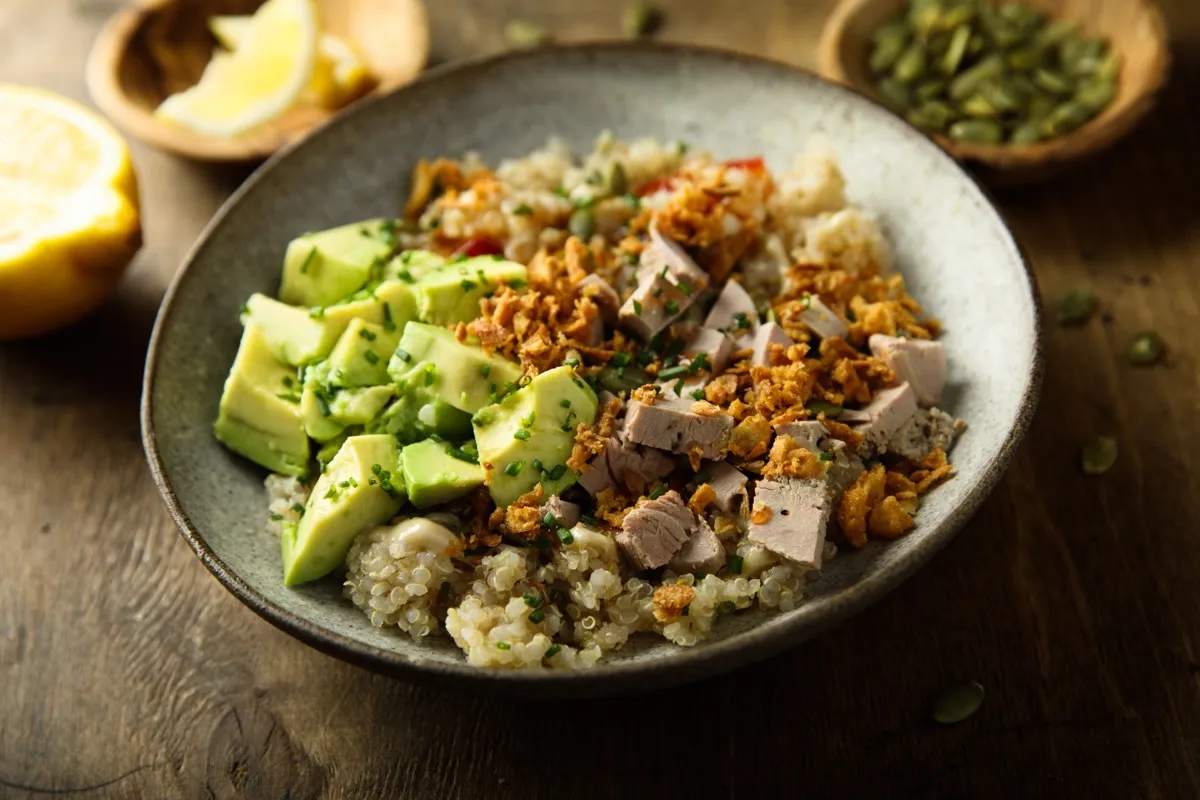
Although not a particular food, eating low-sodium meals can significantly help you lower your blood pressure. In fact, consuming more than 1500mg of sodium per day is associated with higher blood pressure and water retention.
“Water retention puts stress on your arteries, just like cranking up your garden hose,” says Stephen Vogel, MD, a family medicine physician with PlushCare, a leading virtual health platform with primary care, therapy, and weight management options. “Focusing on homemade food where you can control the amount of salt, or choosing low-sodium options from the grocery store or restaurants, can go a long way towards lowering your blood pressure and keeping you healthy.”
Vogel adds that it’s important to remember that your salt shaker isn’t usually the greatest cause for concern. “Rather, it’s hidden away in packaged and processed foods, as well as restaurant foods. Take a look at most frozen or processed food labels—you’ll be shocked at the amount of salt!” he tells Best Life.
2
Berries
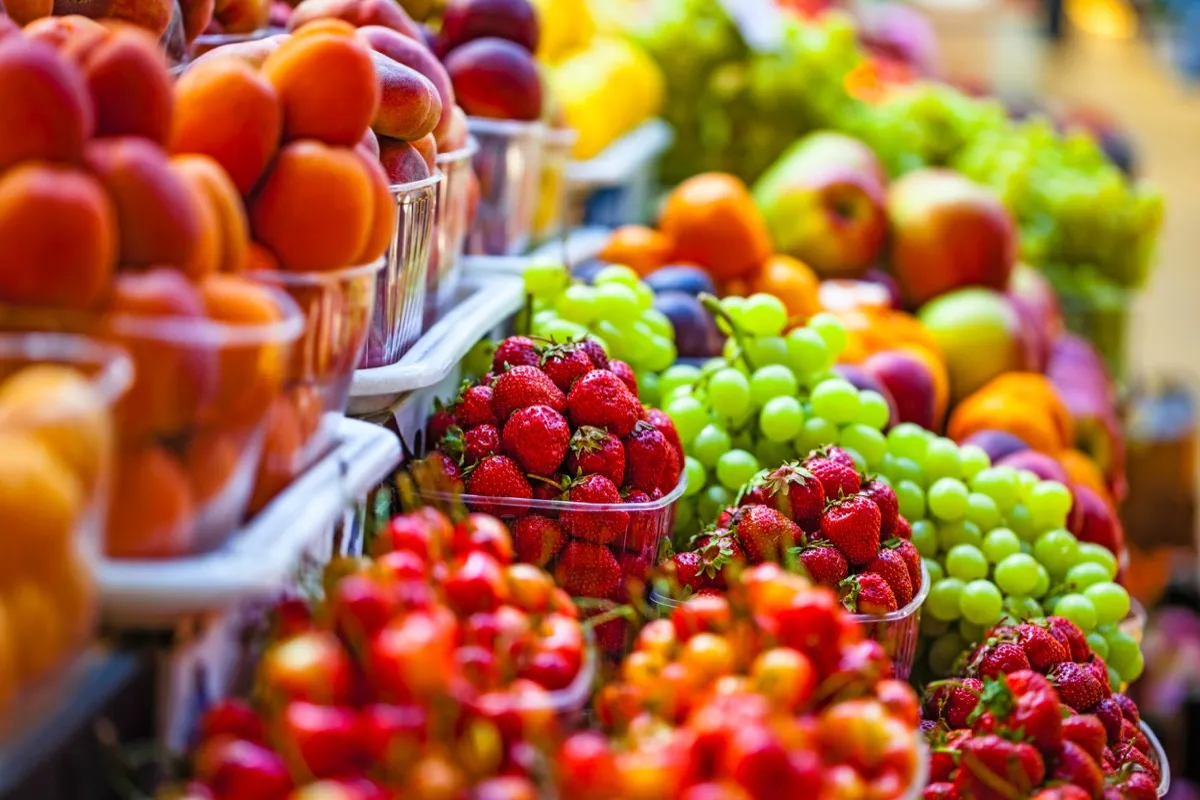
Next, blackberries, raspberries, strawberries, cranberries, and blueberries have antioxidants that also help stabilize blood pressure (not to mention a whole host of other health benefits, including cancer prevention).
Cardiologist Nieca Goldberg, MD, says blueberries are especially effective at reducing one’s hypertension risk. “These contain anthocyanins that increase levels of nitrous oxide, the chemical used to relax blood pressure,” she says.
RELATED: The Best and Worst Supplements for Heart Health, Doctors Say.
3
Fish
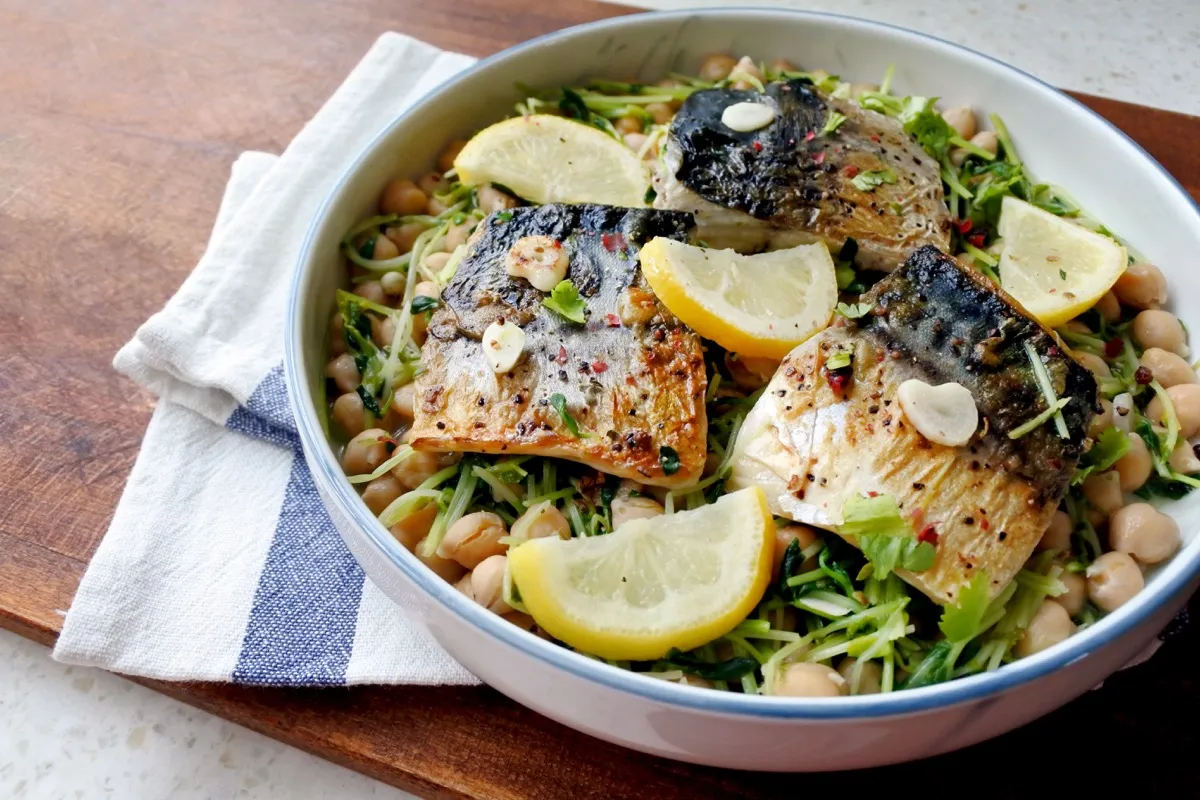
Vogel says eating at least two servings of fish per week can help lower blood pressure in several ways.
“It’s a great source of lean protein, which can help regulate appetite and metabolism. That, in turn, can help people lower their body fat percentage and total body weight, both of which can greatly lower blood pressure. Also, some fish in particular, like anchovies, salmon, and trout, are excellent sources of omega-3 fatty acids. Omega-3s have been associated with blood pressure reduction and heart health,” he explains.
4
Olive oil
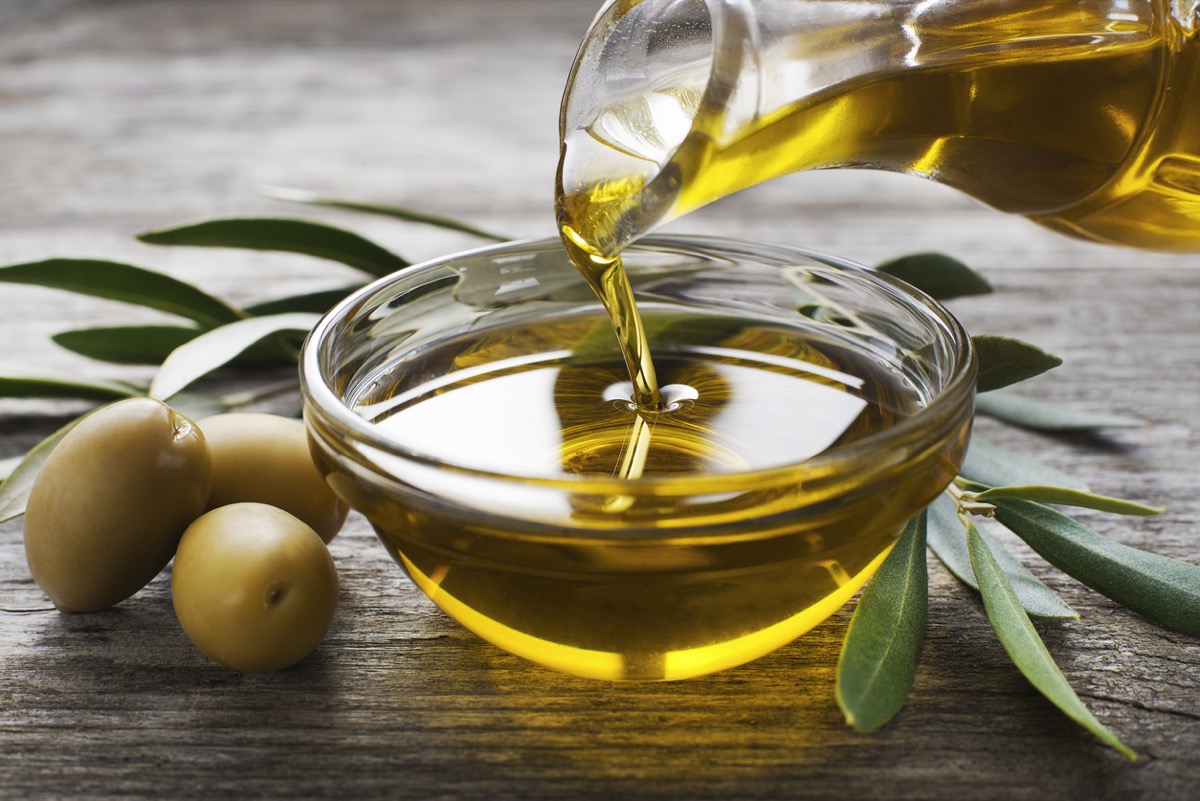
Using olive oil on your food can also help you improve your blood pressure, especially if you eat it instead of industrial seed oils, which some studies have linked to increased rates of hypertension.
“Extra virgin olive oil is rich in both monounsaturated fats and powerful antioxidants called polyphenols. Both of these are linked to better metabolic health, including blood pressure reduction,” Vogel says. “As part of a Mediterranean Diet, olive oil should be used as a replacement for other refined and less healthy oils and fats such as peanut oil, canola oil, and butter.”
5
Beets
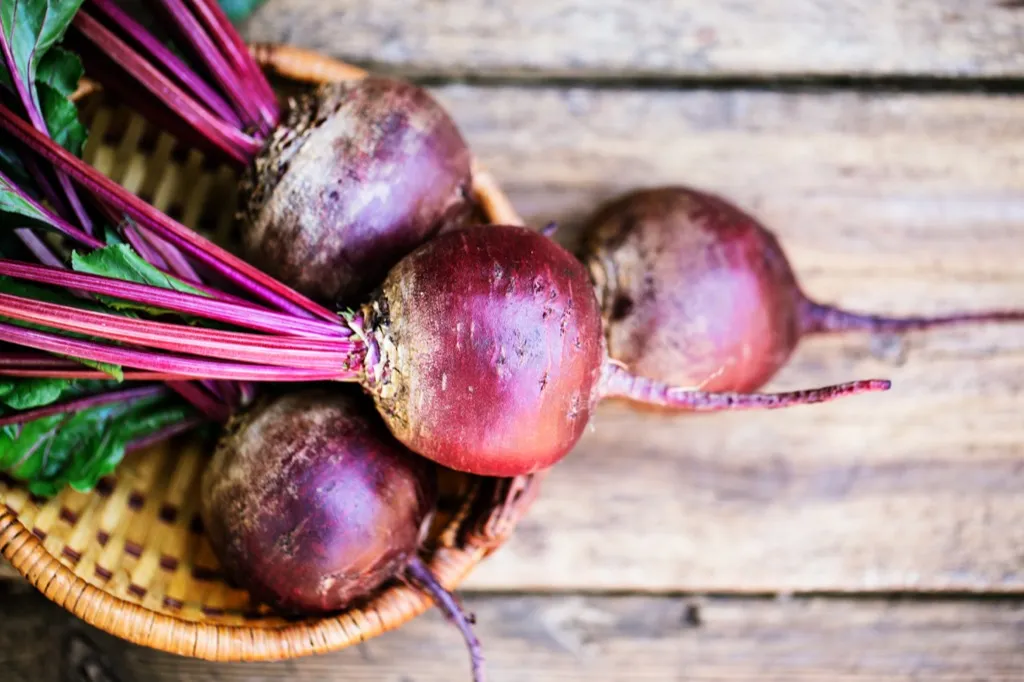
Vegetables tend to be very low in sodium and high in fiber, making them an excellent food choice for controlling your blood pressure.
“Studies have shown that 25 to 30 grams of fiber per day can improve many health outcomes, including blood pressure. So, incorporating whole vegetables, including beets, can be the best way to meet that goal while also benefiting from all the nutrients they provide,” says Vogel.
Not only are beets high in fiber, but they also contain high levels of nitrates, which are natural chemicals that the body converts to nitric oxide.
“Nitric oxide has been shown to improve blood flow and, in turn, may improve blood pressure. Beetroot powder and beetroot juice offer the benefit of being nitrate-rich and may be more convenient, but do not have the fiber found in whole cooked beets,” Vogel explains.
RELATED: 8 Daily Habits That Keep Your Heart Young.
6
Almonds
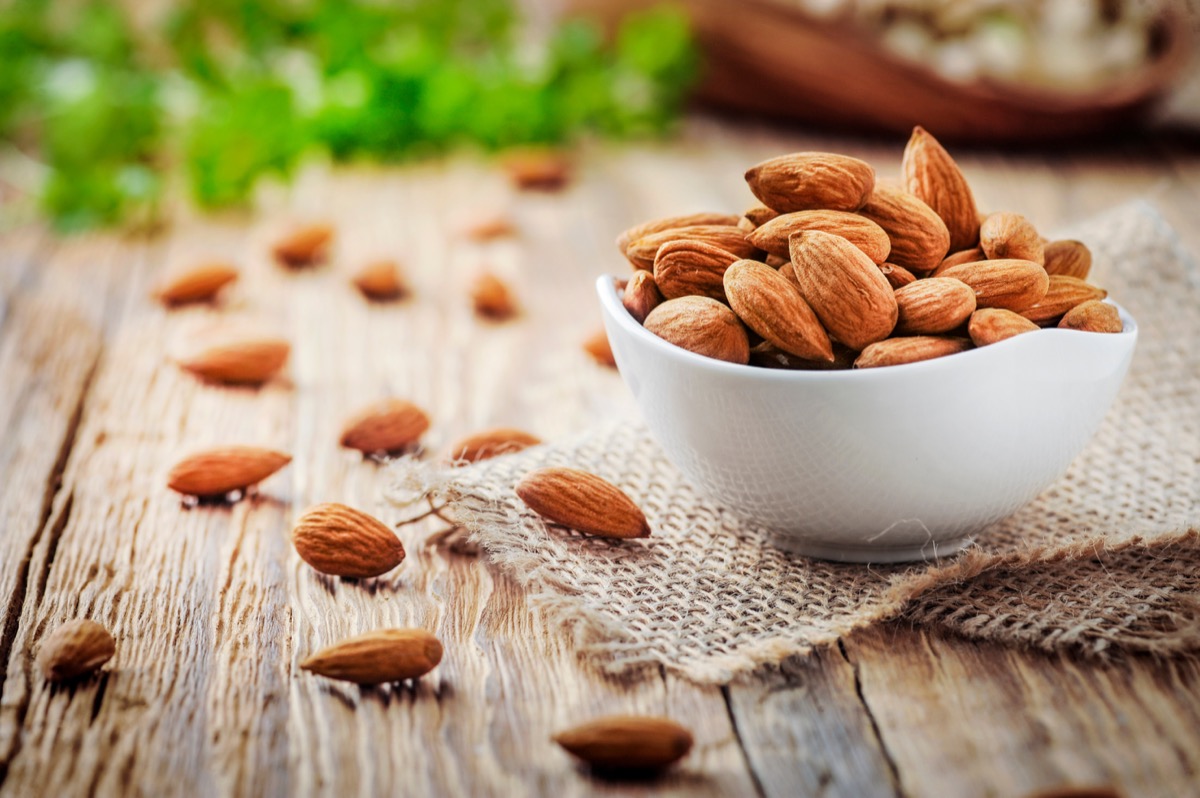
Nuts such as almonds are also beneficial for your blood pressure—not to mention your blood sugar and cholesterol levels.
“Almonds are high in healthy fats and also magnesium. Unlike carbs, healthy fats can really help regulate hunger spikes and regulate metabolism, which can be of great help when someone is trying to lose weight and lower blood pressure,” Vogel shares. “Magnesium has also been associated with lower blood pressure, making almonds a great choice to ensure you’re meeting your daily requirement.”
7
Broccoli
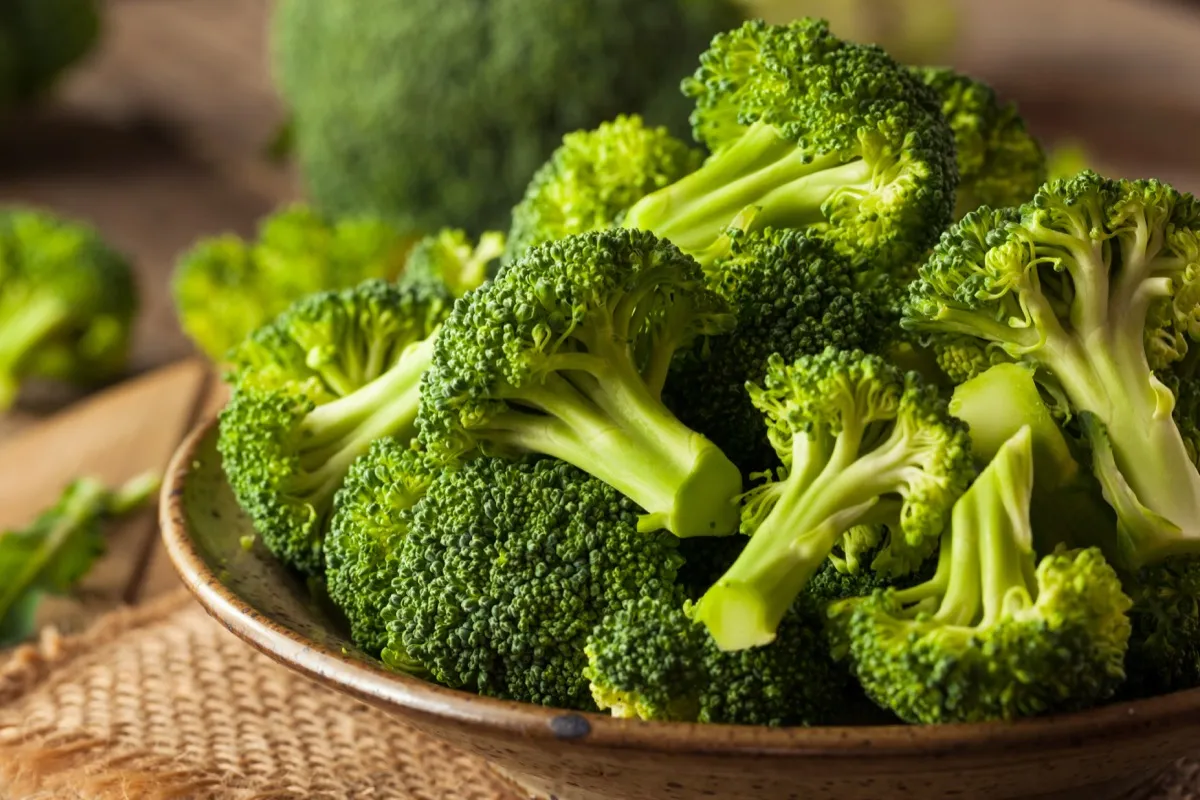
Cruciferous vegetables such as broccoli can also aid in blood pressure regulation. In fact, one study found that eating broccoli four times per week was associated with lower blood pressure levels when compared to people who eat broccoli once per month.
These benefits can be attributed to broccoli’s high levels of calcium and magnesium, Goldberg notes.
8
Bananas
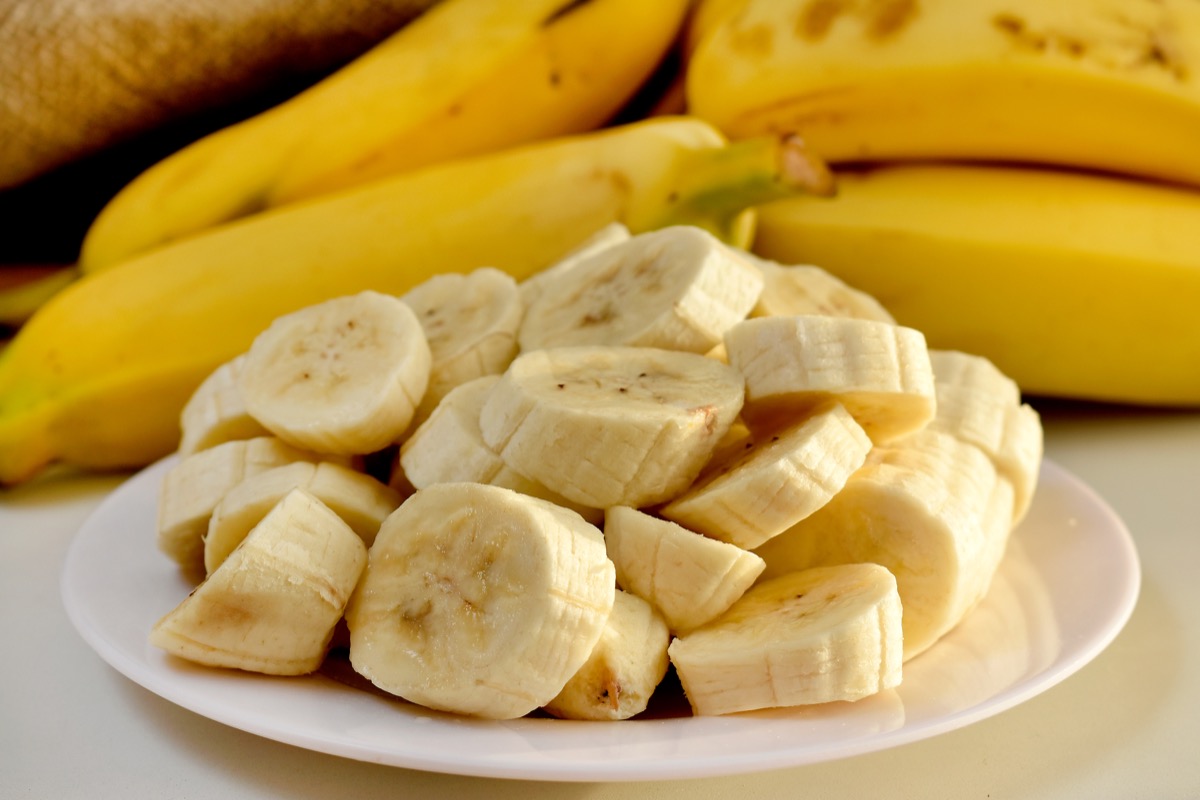
Sodium and potassium are both electrolytes that help your body maintain fluid and blood volume. If you’re hoping to improve your blood pressure, you’ll want to lower your sodium intake while increasing your potassium intake.
“Bananas are an important source of potassium, and potassium helps regulate blood pressure. Folks who are low in potassium can have a variety of issues, including abnormal heart rhythms and blood pressure complications,” Landau notes.
9
Avocados
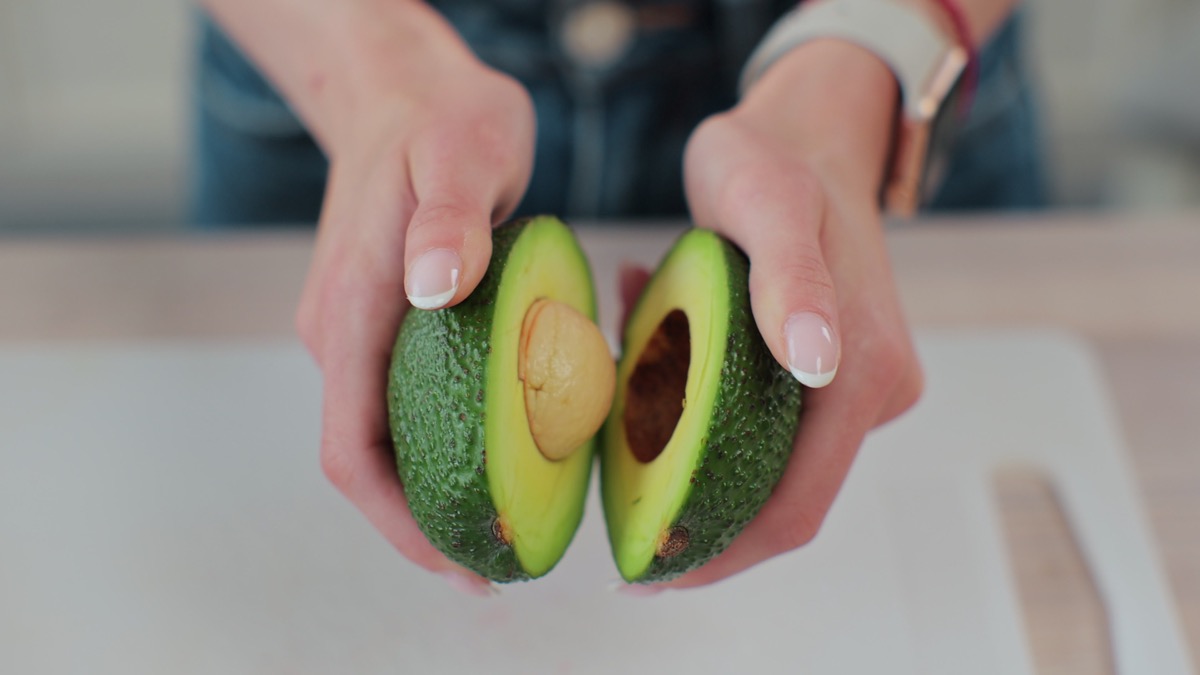
Bananas aren’t the only high-potassium fruit that can help lower your blood pressure. Goldberg points out that avocados are also high in potassium, not to mention Omega-3 fatty acids—both of which can lower your risk of hypertension and improve your BP levels.
RELATED: 10 Best Foods for Joint Health, According to Doctors.
10
Beans and legumes
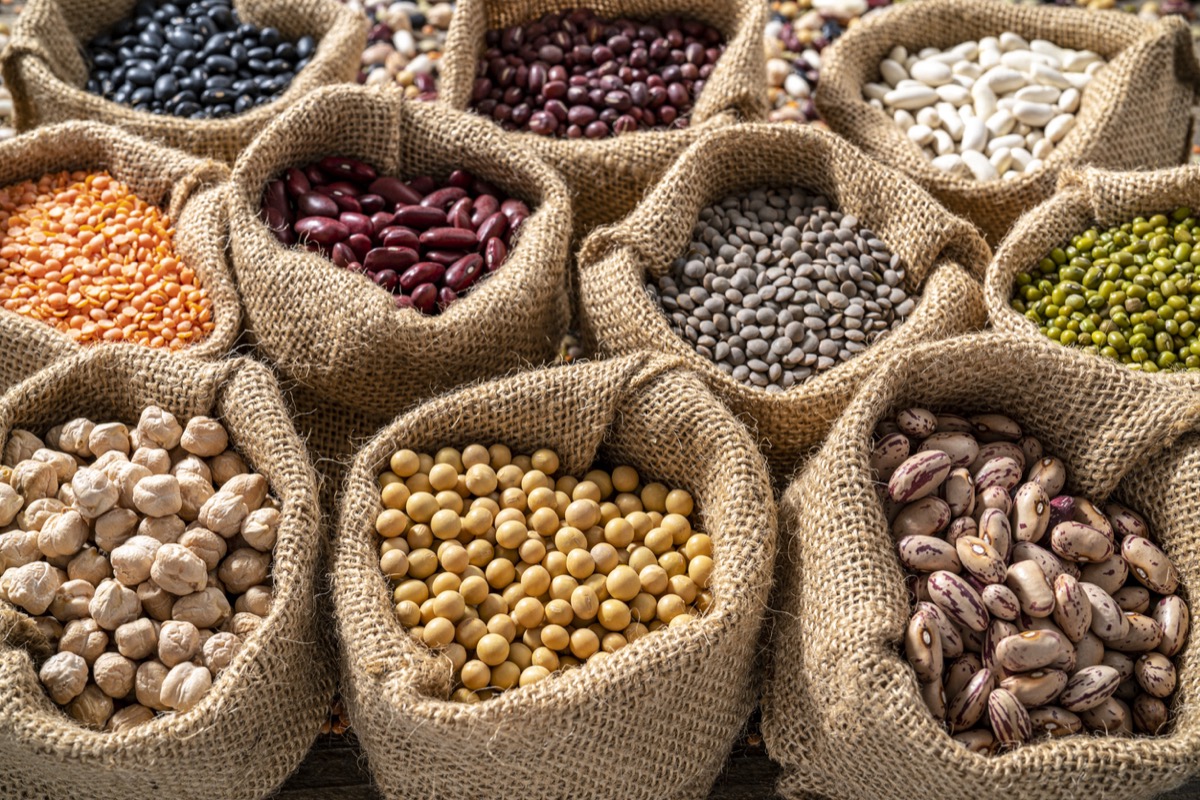
Beans and legumes are another heart-healthy food that can help you bring down your blood pressure levels.
In addition to being low in salt, Goldberg says these “are high in fiber, potassium, calcium, and magnesium, which help to lower blood pressure.” However, she notes that if you’re buying canned beans, it’s important to ensure the label says “no salt added.”
11
Oats
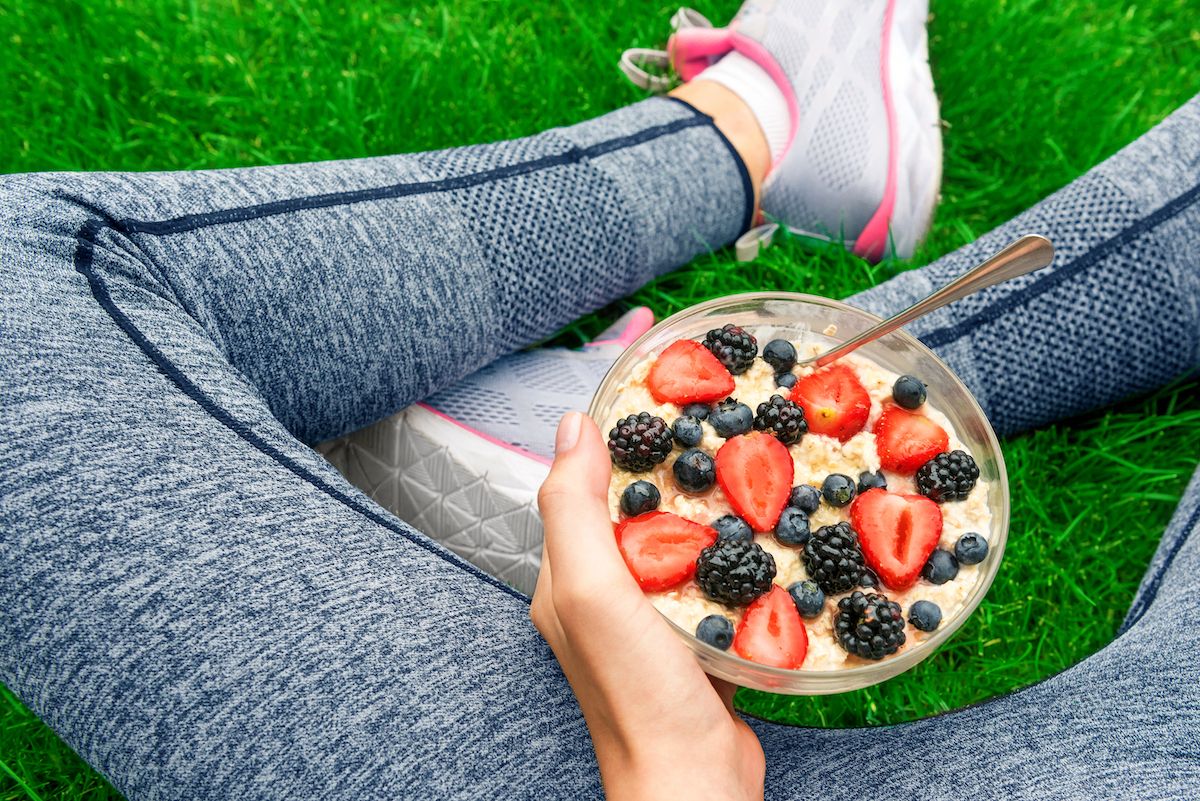
If you’re trying to maintain a healthy blood pressure, oatmeal makes for a heart-healthy breakfast.
“Oats are also a heart-healthy food that we believe can help with blood pressure control. Oats have beta-glucan, which appears to be important for heart health and blood pressure support,” Landau notes. “Their fiber helps to regulate water balance and helps with constipation and bloating.”
12
Cinnamon
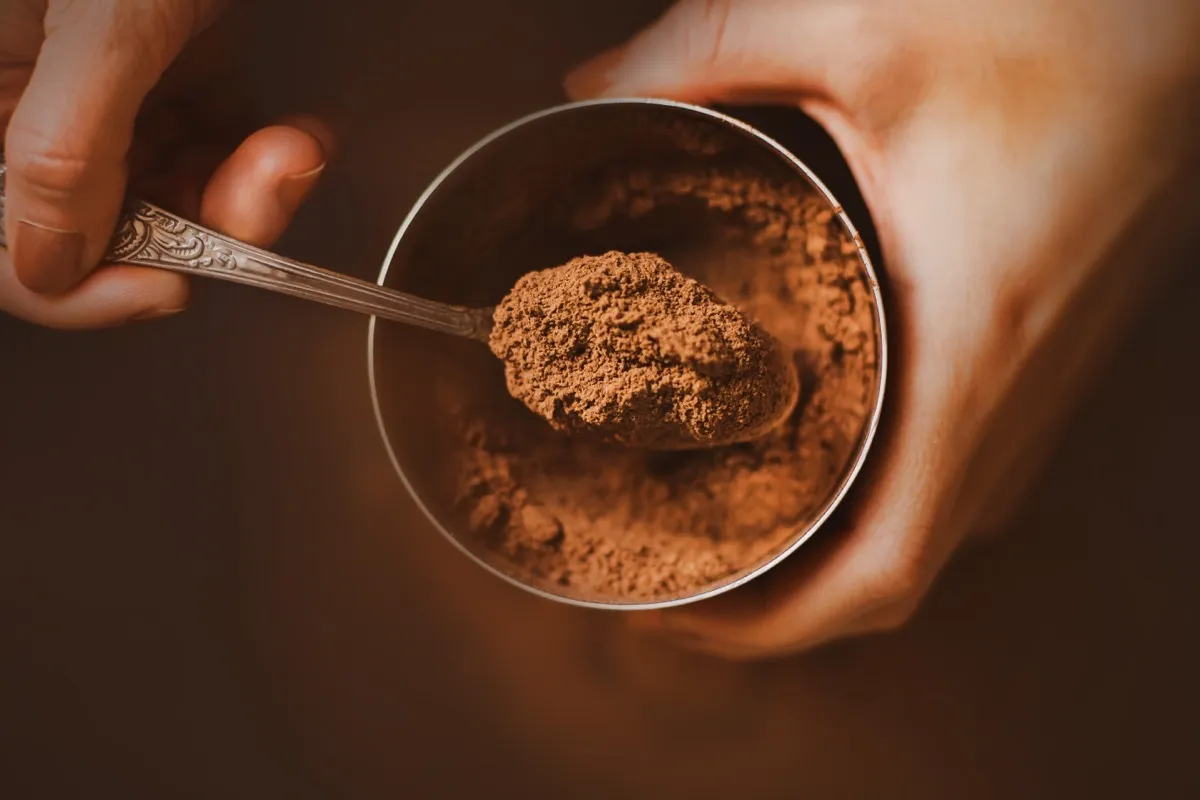
Landau next recommends cinnamon, noting that people who consume cinnamon often tend to have healthier blood pressure. “That doesn’t mean I encourage cinnamon toast crunch cereal, but adding a little cinnamon to your oatmeal may be a good way of combining two potentially helpful options,” he says.
Animal research suggests that the benefits may result from the spice dilating the blood vessels.
RELATED: Cardiac Surgeon Shares 4 Foods He Avoids for Heart Health in New Video.
13
Probiotic yogurt
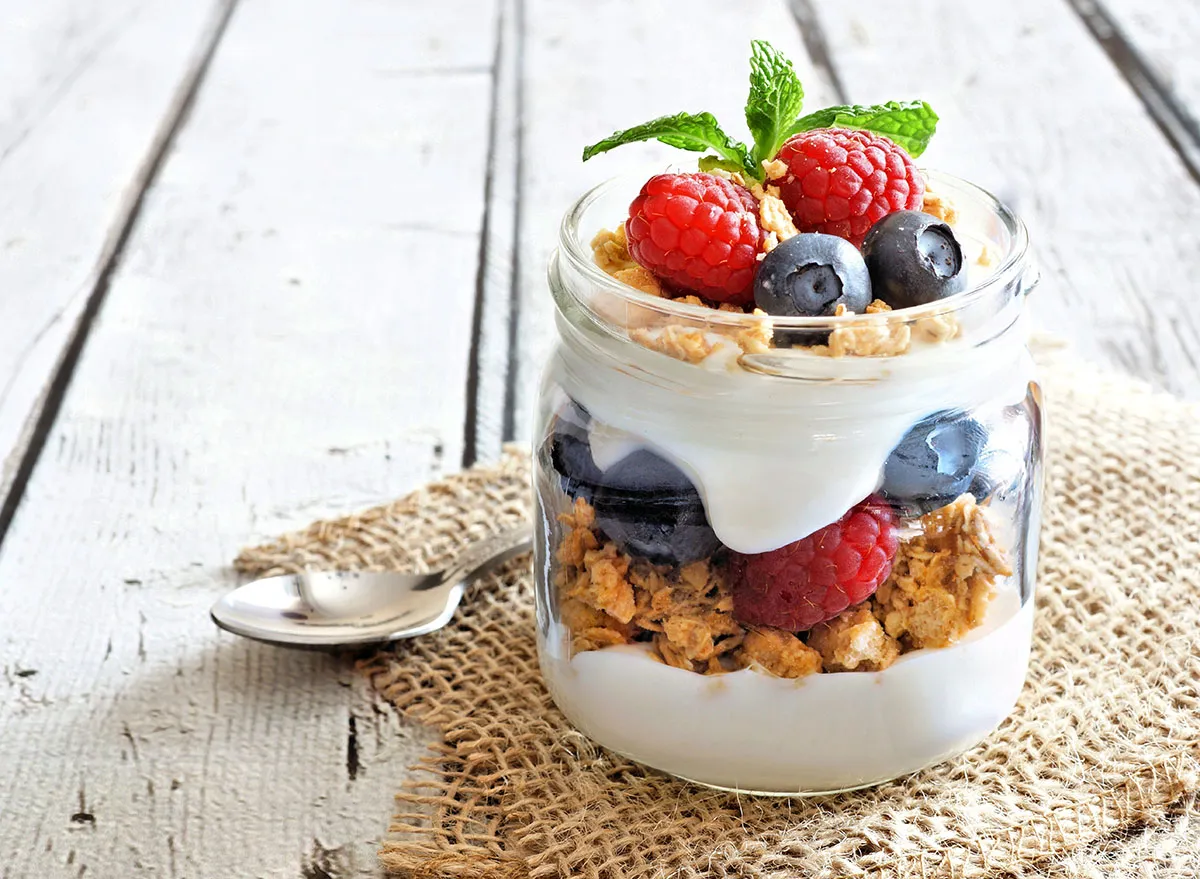
Yogurt can also serve as a means of lowering your blood pressure through your diet since it’s high in both calcium and potassium, Goldberg says.
In fact, a 2013 meta-analysis says that Greek yogurt and other probiotic yogurts made with fermented milk are especially effective in lowering the blood pressure of both pre-hypertensive and hypertensive subjects.
14
Kiwis
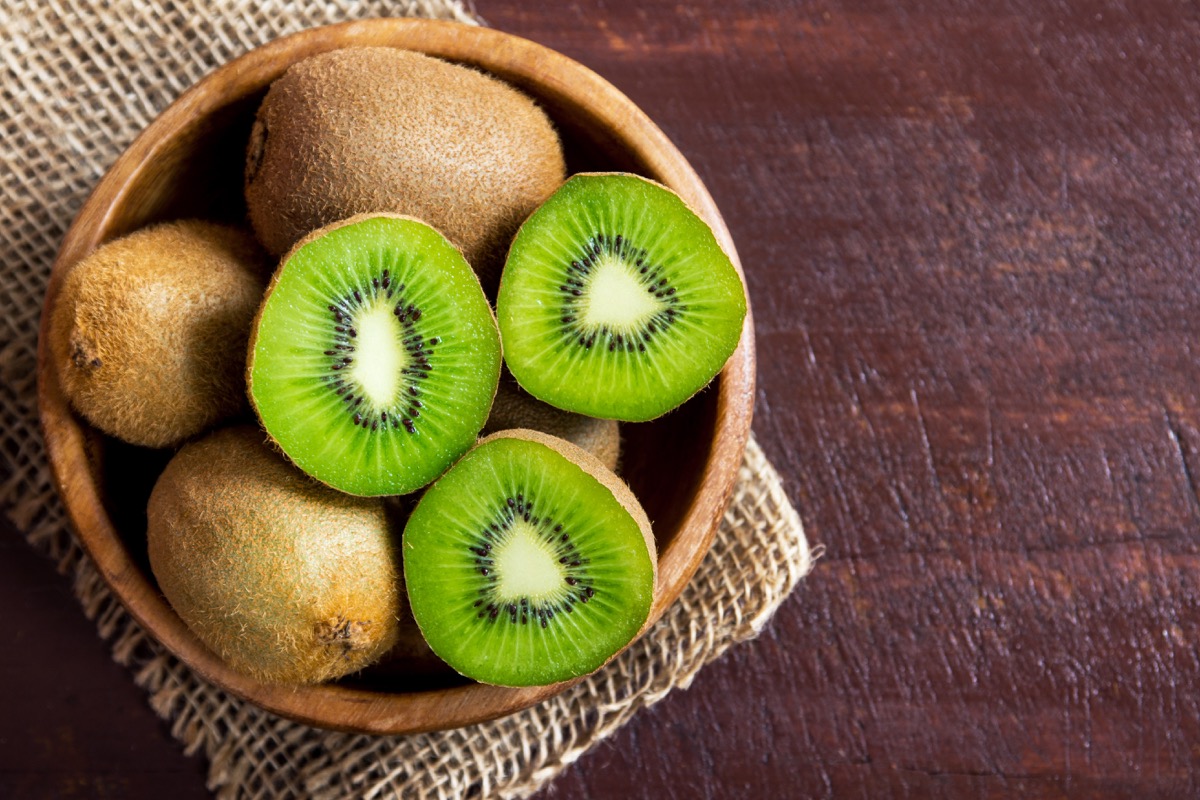
Kiwis are loaded with potassium and magnesium, making them another good choice to lower blood pressure, says Goldberg.
15
Citrus fruits

Finally, citrus fruits are high in flavonoids, an antioxidant that relaxes blood vessels, thereby leading to lower blood pressure. Goldberg recommends making them part of your everyday diet if you’re hoping to bring down your blood pressure levels.
One study showed that drinking commercial orange juice could successfully help lower blood pressure. However, it’s important to keep in mind that juice tends to be high in sugar, which can affect your health in other ways if consumed in excess.
- Source: BMJ: Dietary fats, blood pressure and artery health
- Source: Fruit and Vegetable Consumption and the Incidence of Hypertension in Three Prospective Cohort Studies
- Source: Critical Reviews In Science & Nutrition: Anti-hypertensive effects of cinnamon supplementation in adults
- Source: Avicenna Journal of Phytomedicine: Cinnamon effects on blood pressure and metabolic profile
- Source: The British Journal of Nutrition: Effect of probiotic fermented milk on blood pressure
- Source: ARYA Atherosclerosis: Effects of Citrus sinensis juice on blood pressure